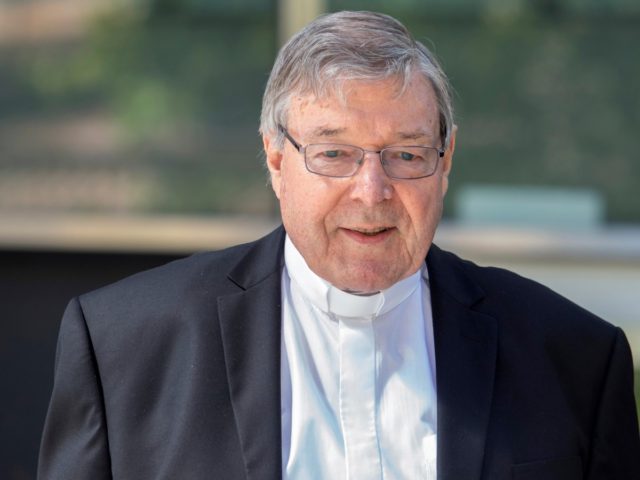Australia’s highest court unanimously acquitted Cardinal George Pell of child abuse on Wednesday, after the 78-year-old prelate spent 405 days in jail.
By a vote of 7-0, the high court ruled favorably in Pell’s appeal, noting that there was “a significant possibility that an innocent person has been convicted because the evidence did not establish guilt to the requisite standard of proof.”
“The High Court found that the jury, acting rationally on the whole of the evidence, ought to have entertained a doubt as to the applicant’s guilt with respect to each of the offences for which he was convicted, and ordered that the convictions be quashed and that verdicts of acquittal be entered in their place,” wrote Chief Justice Susan Kiefel in a summary of the decision that has been made public.
In what was described as a “witch hunt” against the conservative prelate, Australian courts went after Pell in 2017 despite the fact that he had already been tried and exonerated in 2002. At that time, former Victorian Supreme Court justice Alec Southwell ruled that accusations of sex abuse against Pell were unsubstantiated, citing “valid criticism of the complainant’s credibility” as well as “the lack of corroborative evidence and the sworn denial of the respondent.”
Writing in the Sydney Morning Herald, Amanda Vanstone said that the “media frenzy surrounding Cardinal George Pell is the lowest point in civil discourse in my lifetime.”
“What we are seeing is no better than a lynch mob from the dark ages,” Vanstone wrote, insisting that Pell has been treated by the media “as guilty from the start,” with no presumption of innocence or sober assessment of the facts of the case.
“What we are seeing now is far worse than a simple assessment of guilt,” Vanstone added. “The public arena is being used to trash a reputation and probably prevent a fair trial.”
In December 2018, Cardinal Pell was convicted of having sexually abused two altar servers while he was Archbishop of Melbourne in the late 1990s, following an earlier mistrial in which a jury was deadlocked at 10-2 in favor of declaring the cardinal “not guilty.”
A number of witnesses stepped forward to denounce the guilty verdict handed down against Pell in what they describe as the mock trial of an innocent man.
An article by canon lawyer Ed Condon suggested that a series of reporting restrictions imposed by the County Court of Victoria in Australia did not serve to guarantee an impartial trial but rather to obfuscate the truth.
Judging decades-old sex abuse charges with no corroborating evidence risks turning the presumption of innocence into a “legal fiction,” said Condon said, which obliges jurors to choose “between the word of the accuser and that of the accused.”
In these cases, “the right to due process is at risk of becoming moot,” Condon said.
One independent source who was present for the duration of the trial said that the entire proceeding had an “anti-Catholic, anti-clerical drift” and that Pell’s attorneys had made an “unanswerable defense.”
“It was absolutely clear to everyone in that court that the accusations were baseless. It wasn’t that Pell didn’t do what he’s accused of — he clearly couldn’t have done it,” the source said.
In a brief statement following the court’s decision, Pell said that he holds no ill will toward his accuser and that “the only basis for justice is truth.”
“My trial was not a referendum on the Catholic Church; nor a referendum on how Church authorities in Australia dealt with the crime of pedophilia in the Church,” he wrote. “The point was whether I committed these awful crimes, and I did not.”
The current archbishop Sydney, Anthony Fisher, has issued a statement welcoming Pell’s acquittal.
“The Cardinal has always maintained his innocence and today’s decision confirms his conviction was wrong,” Fisher said.
“This has not just been a trial of Cardinal Pell, but also of our legal system and culture,” he added. “The Cardinal’s vindication today invites broader reflection on our system of justice, our commitment to the presumption of innocence, and our treatment of high-profile figures accused of crimes.”

COMMENTS
Please let us know if you're having issues with commenting.